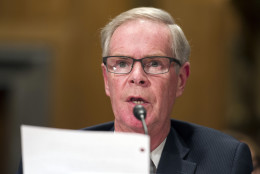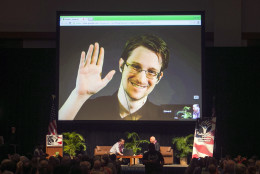Technology
-
Adelle Rydman, director of federal business for Zenoss, makes the case for agencies to do more to make sure their networks are running as efficiently and effectively as possible.
October 18, 2016 George Young, senior director of Federal at Elastic, joins host John Gilroy to discuss data analytics and how his company can help your agency moved to the cloud. October 18, 2016
October 17, 2016-
What might a Trump administration look like for federal managers? What would another Clinton in the Executive Office mean? Regardless of who wins the presidential election, by Nov. 9 the government workforce needs to be ready to go in any direction.
October 17, 2016 -
The General Services Administration’s 18F organization is reviewing bids of a solicitation to provide identity proofing and fraud detection for its Login.gov portal. But RFQ already is raising some concerns about the initiative.
October 17, 2016 -
The Office of Management and Budget’s Dave Mader said the demand for shared services is driving the government back to consider private sector providers after several years of focusing on the government only.
October 17, 2016 -
New preliminary data from Deltek’s GovWin shows agencies spent only $120 million on cloud computing in 2016 despite it being six years since OMB’s cloud-first policy.
October 17, 2016 -
Experts say until the government moves to a continuous evaluation program of employees and contractors with clearances, threats from employees will continue to grow.
October 17, 2016 -
The constant danger and the endless procedures to ensure cybersecurity combine to produce a new psychological phenomenon — security fatigue. That's according to a group of researchers from the National Institute of Standards and Technology. Computer scientist Mary Theofanos joins Federal Drive with Tom Temin with more.
October 14, 2016








